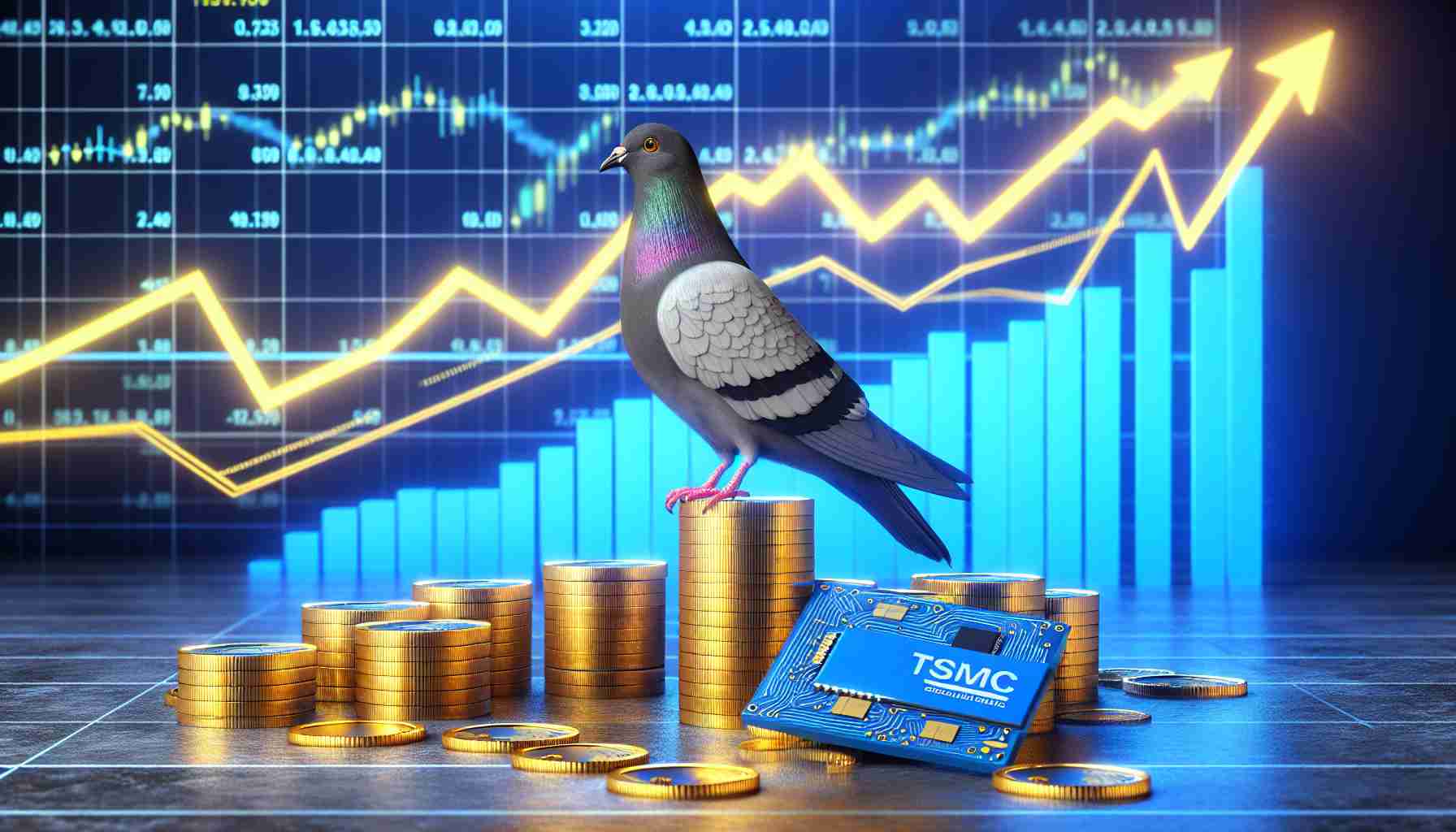Taiwan Semiconductor Manufacturing Company (TSMC) experienced a noticeable uptick in its U.S. stock, edging up nearly 1% to close at $188.42. The positive shift is attributed to optimistic forecasts for TSMC’s production capacity, especially as it ramps up manufacturing for prominent tech companies like Qualcomm and MediaTek.
Analysts highlight that the ongoing demand for high-tech smartphone components plays a crucial role in TSMC’s robust performance outlook. Despite reports of Apple planning a decrease in iPhone production during the initial months of the next year, TSMC is projected to sustain its high production capacity for its cutting-edge 3nm and 5nm process technologies through the first half of the year.
Additionally, the surge in need for artificial intelligence (AI) chips is expected to significantly elevate the effectiveness of TSMC’s 5nm processes. Industry experts suggest this surge could push production utilization rates beyond 100%, indicating excessive demand that TSMC is poised to meet.
By capitalizing on its advanced semiconductor processes, TSMC continues to strengthen its position amid burgeoning demand from tech giants. This impressive capacity to deliver, even in the face of fluctuating client demands, reinforces the semiconductor leader’s pivotal role in the tech ecosystem.
TSMC’s Semiconductor Success: Beneath the Surface of Silicon Valleys
The world of semiconductors is continuously evolving, and the Taiwan Semiconductor Manufacturing Company (TSMC) is at the forefront of this technological revolution. While recent reports focus on TSMC’s booming stock performance and its aggressive ramp-up in production capacity, there are several underlying aspects of this success story that have farther-reaching impacts on societies globally.
The Global Reach of TSMC’s Innovation
TSMC’s advancements in cutting-edge semiconductor technology do not only affect the companies it supplies, like Qualcomm and MediaTek, but they ripple out to impact societies worldwide. Semiconductors are the backbone of modern technology; they power everything from smartphones and computers to the burgeoning Internet of Things (IoT) and Artificial Intelligence (AI) applications.
Impact on Automation and Jobs
With the increase in AI chip demand, TSMC’s role in the tech ecosystem transcends just production metrics. The rise in AI capacity thanks to TSMC’s semiconductors enables more sophisticated automation processes across industries, potentially displacing certain jobs even as it creates new opportunities in tech development and maintenance fields. Communities will need to adjust, requiring new educational programs and training to prepare workers for the evolving job market.
Environmental Considerations
The production of semiconductors is resource-intensive, demanding significant water and energy usage. TSMC’s increased production capacity could lead to heightened environmental concerns, especially as climate change considerations become more pressing. The company’s operations could inspire other tech manufacturing giants to focus on sustainability and innovation in resource management. Are big tech companies prepared to balance economic growth with environmental stewardship?
Advantages and Disadvantages
– Advantages:
– Economic Growth: TSMC’s advanced processes contribute to economic growth in regions dependent on tech companies.
– Innovation Driver: Their capacity to meet excessive demand facilitates innovations that improve life quality.
– Job Creation: Direct and indirect jobs are created in tech sectors and beyond.
– Disadvantages:
– Environmental Impact: Increased production may lead to higher carbon footprints and resource depletion.
– Job Displacement: Automation and AI advancements might render some job roles obsolete.
Controversial Elements in the Semiconductor Race
As a behemoth in the semiconductor industry, TSMC faces scrutiny over its market influence and the geopolitical implications of its expansion. With ongoing tensions between leading tech powers, the strategic placement of semiconductor manufacturing – and who controls it – remains a contentious point.
What Does the Future Hold?
What steps is TSMC taking to ensure a balance between high demand and sustainable practices? How will its innovations shape future technological landscapes? These are vital questions for stakeholders across industries.
For more information about TSMC and the semiconductor industry advancements, visit TSMC. Discover more about technological growth and innovations at Qualcomm and MediaTek.






















